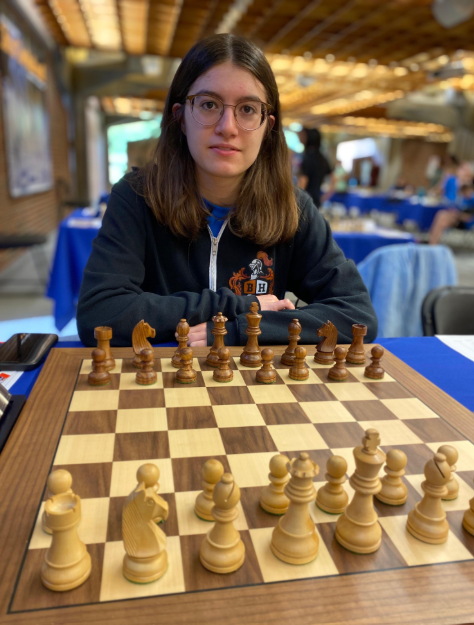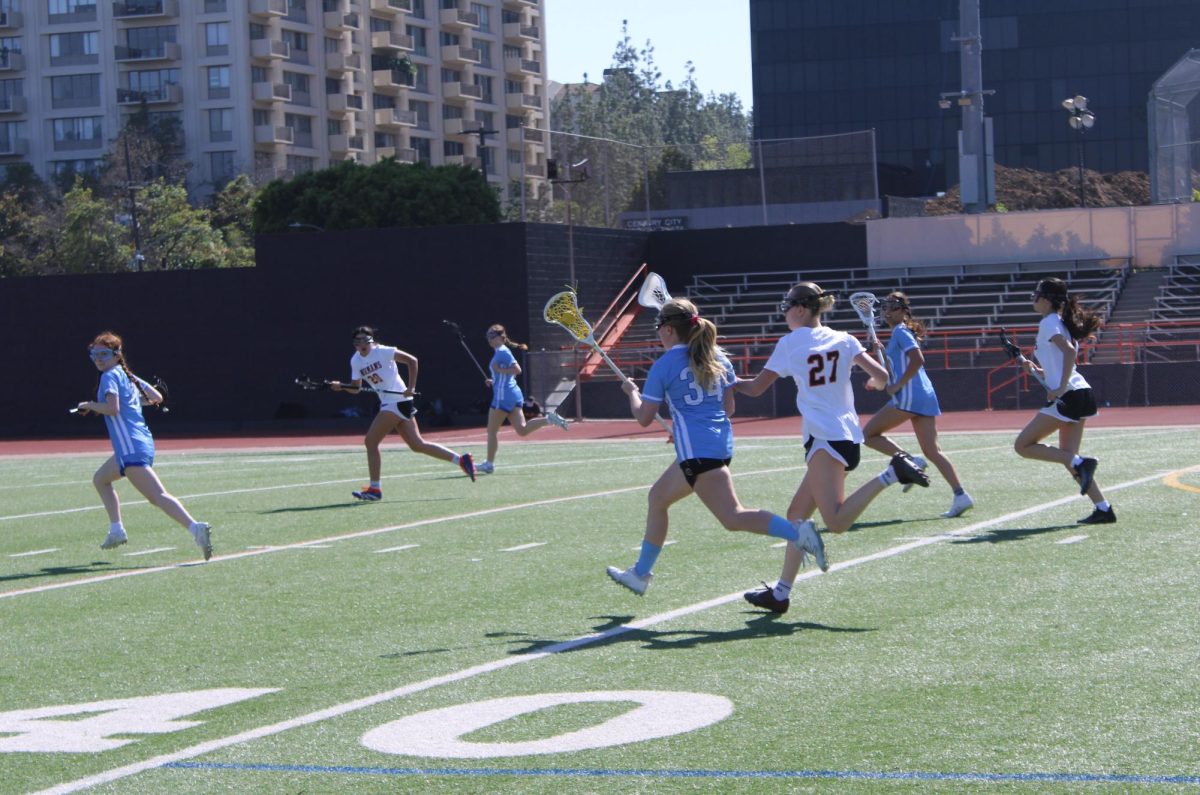Senior Chloe Zamojski spent this summer playing in chess tournaments across the country, continuing a journey that she had started eight years ago after being inspired by her brother.
Her desire to follow in her brother’s footsteps led her to learning the sport and playing tournaments. In her debut tournament, she lost the first three rounds but won the final match. This moment motivated her enough to focus on becoming the player she is today.
Currently, she acts as president of Beverly’s chess club and provides a space for players of all skill levels to learn and play the sport. They occasionally organize tournaments that players can participate in to sharpen their skills.
Zamojski shared the competitions she entered and what these experiences meant to her as a young woman in chess.
Tell me the chess tournaments that you participated in this summer.
The first week of June, I went to Las Vegas for the International Chess Festival. First, I played the Women’s Open, and then I played the under-2100 event. I think it was really nice because they always try to create a supportive environment for women in chess.
Unfortunately, for one of the rounds, I got the time wrong, and I arrived 23 minutes late, so I had almost no time on my clock. I was also playing a master, so I was really nervous about that. But I was actually able to make a draw, so I felt really proud of myself.
At the end of June, I went to another tournament, the Susan Polgar Girls Invitational. For this tournament, they selected two top representatives from every state and two from Canada. I was the first nominee for Southern California since the state is divided into two separate entities, each with its own two nominees.
How did you feel when you found out you were the nominee for Southern California?
I was really happy because I honestly didn’t expect it. I didn’t think I did well in the Superstates tournament, which is how you qualify. But I was pleasantly surprised when I found out I qualified.
I also got to meet a bunch of other girls who play chess, and it was cool because we stayed in the dorms at Webster University. I thought it was really fun getting to know people who enjoyed the same sport as me.
Why do you think having supportive environments for women in chess is important?
The percentage of women in chess is very low, and although it is significantly higher than in previous years, it’s still not very high. Having supportive spaces is important so that we can make these ratios more 50-50.
The US Chess Federation, along with other federations, wants to encourage more women to play so that the percentage of women can even out to the percentage of men. We want to make sure that this sport is inclusive and welcoming to all types of people.
Tell me how you felt when finding out that your opponent for a match was a master.
I try not to focus too much on my opponent, but instead I try to focus on the game and playing to the best of my ability. It was a lot more motivating because I wanted to win and show my skill, but there was also a lot more pressure.
And if you arrive 30 minutes late, you automatically forfeit, and I had a little more than 5 minutes before this would have happened. I had never arrived late to a match as well, so all of this made me a lot more nervous. But I was really proud of myself that I ended up drawing since I had started with such a huge disadvantage.
Zamojski’s experiences this summer showed her skill and resilience as a player. This resilience demonstrates a theme she carries with herself: never give up because you don’t know what success might come from it. Had she quit her first tournament, she would not have become the accomplished player that Beverly is proud to call their own.
































